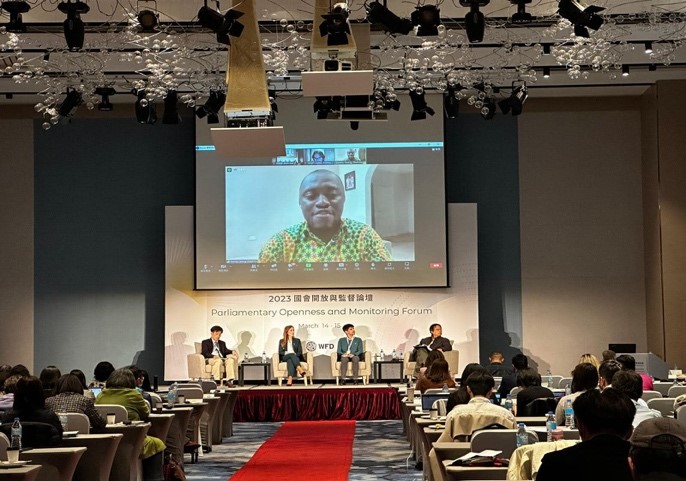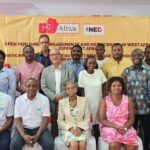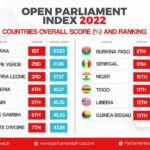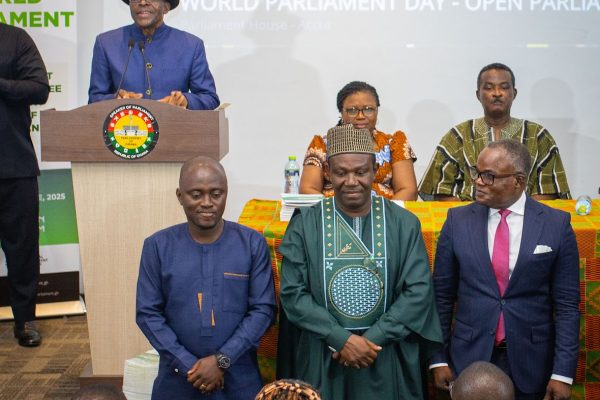History and Background of APMON:
The Africa Parliamentary Monitoring Organizations Network (APMON) is a network of non-governmental organizations and coalitions of civil society organizations that monitors the work of and/or regularly engages national, subnational, and regional parliaments across Africa. APMON is committed to enhancing parliamentary transparency, accountability, and citizen inclusion in parliamentary work across the continent. Our objectives include promoting access to parliaments; developing tools to evaluate parliamentary performance; monitoring parliament for anti-corruption reforms; fostering citizen engagement with their national and regional parliaments; and facilitating peer learning among Parliamentary Engagement and Monitoring Organizations (PEMOs) to showcase best practices in parliamentary work and to contribute to the overall progress in transparency and openness among African parliaments.
APMON was founded on the principles of transparency, accountability, and citizen engagement. With its secretariat sitting in Accra, we are dedicated to collaborating with national and regional parliaments across Africa to promote openness and inclusivity.
In this short article, my goal is to share with you highlights of the impact APMON has made over the two years it has been working across the continent.
Membership/Country Networks
Why the need for Country PEMO Networks?
- Countries with national PEMO networks derive enormous benefits from their membership with APMON. The focus on building effective PEMO networks has strengthened the capacity of PMOs to collaborate and has empowered them to work cohesively, share best practices, and collectively address challenges within their area of operation in their countries.
- Unified approach to parliamentary engagement: After years of CSOs failing to engage the Members of Parliaments in many countries, the creation of country Networks of PEMOs has made it possible for successful engagements with Parliaments and their Members to secure their buy-in on various issues that promote open parliament. We find out that Parliaments are usually willing to engage networks rather than individual organizations.
- Collaborative problem-solving: member networks share diverse perspectives and experiences on issues to collectively address common challenges and share solutions across borders. Our webinars and learning platforms provide the opportunity for members to share experiences from successful innovative projects and initiatives for other members to replicate in their countries.
What is Open Parliament?
Before providing any insights, do you understand the concept of Open Parliament? When was the first time you came across the concept and what was the first thing that came to mind? Or perhaps this is the first time you are crossing paths with the concept?
An open parliament encourages transparency, participation and accountability throughout the legislative process. It means ensuring access to legislative information and creating mechanisms for public participation and accountability are critical to building an open, trusting relationship with citizens. Open parliament is one of the core thematic/policy areas under the open government partnership which has parliamentary engagement as an integral part of its philosophy towards implementing ambitious open government reforms.
What are PEMOs?
Parliamentary Engagement and Monitoring Organizations (PEMOs) are non-governmental organizations and civil society organizations that monitor the work of and/or regularly engage national, subnational and regional parliaments across Africa. They are organizations whose operations involve working with parliament full-time or part of their work involves working with parliament to enhance transparency, accountability and inclusive parliaments. Experience over the years has taught us a useful lesson in maintaining an outlook that welcomes parliamentary stakeholders and gives a sense of our readiness and willingness to collaborate towards achieving common objectives. This informs our use of the name “PEMOs” as it easily clarifies our “raison d’être” to our partners – parliaments and civil society.
Since 2021, the Africa PMOs Network has provided a common platform that enhances learning among PMOs from different parts of Africa and beyond. These organizations share similar goals and visions, and they are determined to address common challenges of open parliament across the continent.
APMON’s strength lies in its diverse and representative structure, comprising organizations from the five subregions of Africa – Central Africa, Eastern Africa, Western Africa, Northern Africa and Southern Africa. This broad representation ensures that APMON captures the unique challenges and opportunities faced by parliaments in each subregion.
NOTABLE CHANGE STORIES
As a continental network committed to enhancing openness in African parliaments, we have caused notable changes through the tools and initiatives that we have created. The following are some of the outstanding impacts we have made over the few years of working across Africa:
Networking, Training and Knowledge Management
All the impact stories I have shared were not achieved in isolation from the other, but rather, a concerted effort of pulling our strengths together as a continental network advancing parliamentary openness on the continent of Africa. Since its inception, the APMON has brought together 250 individual PEMOs under the umbrella of 14 country PMO Networks across Eastern, Western and Southern Africa.
Our growing membership includes:
Countries with established national PEMO Networks: Benin, Burkina Faso, Cape Verde, Togo, Niger, Nigeria, Liberia, Sierra Leone, Ghana, Cote d’Ivoire, Kenya, Gambia, and Senegal.
Countries in the process of establishing networks: Guinea-Bissau, South Africa, Zambia, Zimbabwe, Mozambique, Cameroun, Tunisia, South Sudan, Tanzania, Ethiopia, and Somalia.
Engagement with some Country PEMO Networks in pictures





Within two years, APMON has become a formidable and reputable network of PMOs that have attracted both regional and global recognition. APMON supports the creation of the PMO Network in Asia by sharing invaluable lessons and experiences we have acquired in working with parliaments and civil society in Africa. These lessons have also been shared on global platforms like the Open Government Partnership (OGP) Summit in diverse ways to inspire global partners to work together towards opening their national and regional parliaments.


Within the short period of our existence and operations as a network, APMON has partnered to organize PMO conferences in Eastern Africa where countries in the region showed commitment to working together to build a strong front working with their parliaments. Through this support provided by our regional networks, the Eastern Africa bloc of APMON is organizing its second PMO Conference in 2023 which brings together countries in the sub-region to discuss strategies and actions to further the course of parliamentary openness in the region. In February 2024, when these countries meet in Kampala, Uganda, they will strengthen their support to build the Eastern bloc and discuss ways to participate in the Open Parliament Index assessment which the APMON has begun processes to conduct.


The focus on building effective PMO networks has strengthened the collaborative capacity of PMOs and empowered them to work cohesively, share best practices, and collectively address challenges within their area of operation. As a result, parliamentary stakeholders benefit from a more united and influential PMO network, capable of driving positive change in parliamentary democracy, enhancing how parliament engages with citizens and driving active public participation in parliamentary processes. We are a network that prioritizes the needs of its members and that is what influences our commitment to strengthen the capacity of PMOs through workshops and shared opportunities that address the specific needs of our target population. We believe that when PMOs’ capacities are strengthened, they are better positioned to advocate for open parliament and pursue the principles of transparency, accountability, and citizen engagement.


This forms the basis for us providing sub-grants to selected member country PMO Networks to advocate for open parliament and support their national parliaments towards enhancing the effectiveness of parliament. This support is made possible through the generous giving of the National Endowment for Democracy (NED) for supporting parliamentary democracy and active citizenship on the continent. We hope that we can extend this financial support to other members within the various blocs of APMON to build a strong momentum of CSOs driving change in parliament for the social good.
By Ben Opoku Aryeh, Senior Programmes Officer at PNAfrica





